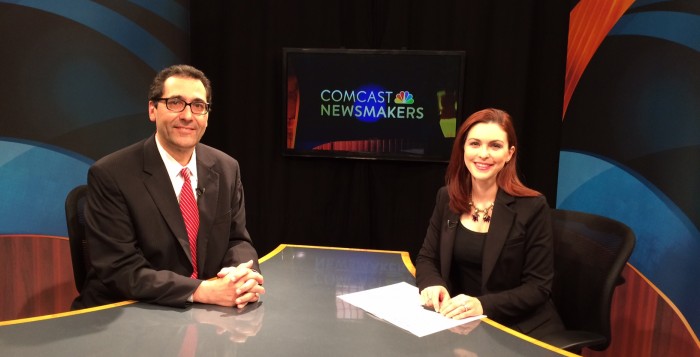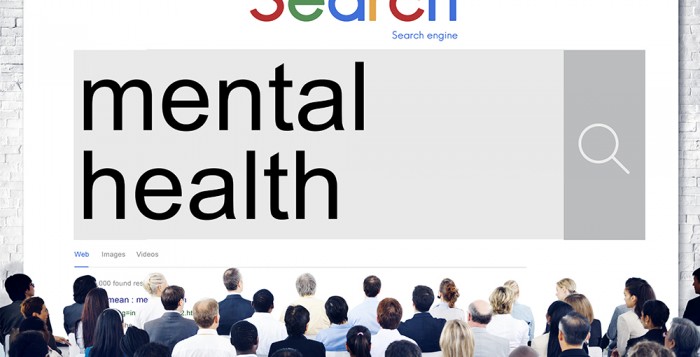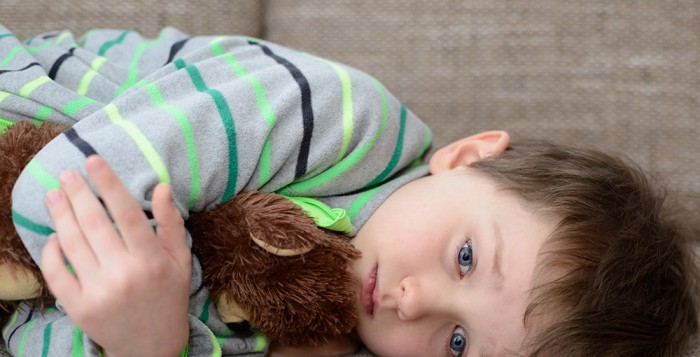See RCPA President & CEO Richard Edley on Comcast Newsmakers, discussing state agency unification and the RCPA Annual Conference with host Jill Horner. @ComcastNewsmkrs
OMHSAS Division of Children, Adolescents and Families
The Division of Children, Adolescents and Family Services has been added to the Department of Health and Human Services organizational chart under the Bureau of Prevention, Intervention, Treatment and Recovery. Previous versions of the Unification Plan and the accompanying organizational chart did not include a designated division to represent children’s mental health.
The absence of children’s mental health on the overall plan and chart was brought to the attention of the Children’s Steering Committee and the larger RCPA children’s provider members. Numerous comments in support of a children’s division were shared with RCPA leadership.
Richard Edley, RCPA President & CEO, Robena Spangler, RCPA Director of Children’s Division, and Rhea Fernandes from Devereux Advanced Behavioral Health met with the Governor’s team to discuss recommendations to address the concerns. RCPA presented a number of options that were taken into consideration by the team.
We are proud to report that as of June 8, the recommendations were fully implemented and the organizational chart has now been updated to reflect the change. We believe this demonstrates that our voices are being heard and that the Governor’s office does value constructive feedback and input into the successful implementation of the unification plan.
Thank you to the Governor’s staff for their interest and response to this very important issue.
GOP House Budget Bill Threatens County Funding
RCPA Submits Letter on Agency Unification and Government Efficiencies
Late last week, RCPA submitted a letter to Secretaries Dallas, Murphy, Osborne, and Acting Secretary Smith regarding agency unification and government efficiencies. The letter was also sent to all of the oversight committee chairs. The list of efficiencies was compiled from input received from RCPA members and staff. Questions, contact Jack Phillips.
Senate Committee Passes SB 561
Today, the Senate Rules and Executive Nominations Committee passed SB 561. The senate bill amends the Regulatory Review Act to require the General Assembly and the Governor to approve all regulations with an economic impact or cost to the Commonwealth, its political subdivisions, and to the private sector that exceed $1.0 million.
RCPA staff has been successful in amending the bill to include legislative language – “the private sector” – because of the economic impact regulations have on health and human service providers’ budgets. RCPA staff continues to work with the prime sponsor and the state senate on this important piece of legislation. Questions, contact Jack Phillips.
Contact your State Legislators Regarding Human Service Funding Cuts
The Secretaries of the Departments of Human Services, Aging, Health, and Drug and Alcohol Programs sent a letter to the Senate and House Appropriations Committee Chairs and copied other committee chairs, expressing grave concerns about proposed funding cuts to human services programs in House budget bill HB 218.
RCPA strongly supports the Secretaries’ position. RCPA believes that these funding cuts will hurt our providers and those they serve; therefore, RCPA asks members to contact your state senator and representative and ask them to fully fund the line items that have been targeted for cuts. Questions, contact Jack Phillips, RCPA Director, Government Affairs.
DHS Hosts Mental Health Awareness Fair
(From DHS)
FOR IMMEDIATE RELEASE
May 3, 2017
Department of Human Services Hosts Mental Health Awareness Fair
Governor Tom Wolf proclaimed May Mental Health Awareness Month
Harrisburg, PA – Today, the Department of Human Services (DHS) in collaboration with PA System of Care Partnership, PA Healthy Transitions Partnership, and Youth M.O.V.E. PA, hosted the 2017 Mental Health Awareness Fair in Harrisburg to raise awareness and understanding of mental illness and substance use disorders. Governor Tom Wolf has proclaimed May Mental Health Awareness Month.
“Mental illness and substance use disorders affect Pennsylvanians from all walks of life. Only about half of those people, however, seek treatment,” said DHS Secretary Ted Dallas. “The department is committed to increasing awareness and providing quality care to these individuals so that all Pennsylvanians who need help can get it.”
Representative Mike Schlossberg (D-Lehigh) joined the event to speak about the challenges he has seen in trying to reduce the stigma associated with mental illness.
“No person with mental illness should ever feel alone,” said Representative Schlossberg. “Events like these are more important than ever because we have to make sure that everyone who suffers from mental illness has the chance to obtain treatment and live healthy, productive, and happy lives.”
To help individuals gain access to treatment, DHS was recently awarded a Certified Community Behavioral Health Clinic (CCBHC) demonstration grant by the federal Substance Abuse and Mental Health Services Administration. CCBHCs will enhance access to behavioral health services for Medicaid and CHIP beneficiaries, help individuals with mental illness and substance use disorders obtain the health care they need, allow individuals to have access to a wide array of services at one location, and remove the barriers that too often exist across physical and behavioral health systems. CCBHCs are a step closer to ending the stigma associated with mental illness.
Each mental illness has its own set of symptoms but some common signs of mental illness can include the following:
- Excessive worrying or fear
- Feeling excessively sad or low
- Confused thinking or problems concentrating and learning
- Extreme mood changes, including uncontrollable “highs” or feelings of euphoria
- Prolonged or strong feelings of irritability or anger
- Avoiding friends and social activities
- Difficulties in understanding or relating to other people
- Changes in sleeping habits or feeling tired or experiencing low energy
- Changes in eating habits such as increased hunger or lack of appetite
- Difficulty perceiving reality (delusions or hallucinations, in which a person experiences and senses things that don’t exist in objective reality)
- Inability to perceive changes in one’s own feelings, behavior, or personality
- Abuse of substances like alcohol or drugs
- Multiple physical ailments without obvious causes (such as headaches, stomach aches, vague and ongoing “aches and pains”)
- Thinking about suicide
- Inability to carry out daily activities or handle daily problems and stress
- Intense fear of weight gain or concern with appearance (mostly in adolescents)
For more information on how to access mental health services, click here.
MEDIA CONTACT: Rachel Kostelac, 717-425-7606
DHS Releases 2016 Child Protective Services Report
(From DHS)
FOR IMMEDIATE RELEASE
May 3, 2017
Harrisburg, PA – Today, the Department of Human Services (DHS) released the 2016 Child Protective Services report. The newly formatted report is available here.
“This year’s revamped report includes all county-specific information in one section, which will improve readability and increase usability,” said DHS Secretary Ted Dallas. “We want to ensure this critical information is available for all Pennsylvanians to increase awareness on the issue and empower people to report suspected abuse or neglect.”
The child welfare system in Pennsylvania is state-supervised and county-administered with both agencies having vital roles in the protection of children. DHS is responsible for oversight and enforcement of laws, regulations, and policies that guide the provision of child welfare services at the county level by each of the 67 counties in Pennsylvania. DHS provides funding, oversight, and technical assistance to each county agency. Additionally, DHS is responsible for the licensure of public and private child welfare agencies and the investigation of complaints received regarding these agencies.
In 2016, 46 children lost their lives as a result of abuse, up from 36 in 2015. Seventy-nine nearly died as a result of abuse, an increase from 57 in 2015. Every child fatality and near fatality is closely examined by review teams to determine what, if any, risk factors may have contributed to the child’s death with an eye toward preventing future child fatalities. Most children who die or nearly die due to abuse are under the age of 4 and their parents are most often responsible for their death or near death. Violent acts or lack of supervision are noted as the leading reasons for these fatalities and near fatalities.
“One case of child abuse or neglect will always be one too many. Increased awareness in the commonwealth is leading to more Pennsylvanians taking active steps for prevention,” said Dallas. “Although reports continue to increase, the incidents of substantiated child abuse reports are approximately the same as last year – 1.7 per 1,000 children versus 1.6 in 2015.”
The report includes both child protective services (CPS) and general protective services (GPS) reports.
CPS reports are those that allege a child might have been a victim of child abuse. Reports alleging that a child under 18 years of age may have been abused are accepted for investigation when reported prior to the victim’s 20th birthday.
- Girls are abused at a higher rate than boys;
- Rural counties have a higher substantiation rate than urban counties, 2.6 and 1.6 respectively;
- Statewide substantiated reports of child abuse remained relatively constant from 1.6 per thousand children in 2015 and 1.7 per thousand children in 2016;
- Sexual abuse remains the leading category of abuse, followed by physical abuse; and
- Parents continue to constitute the largest group of persons responsible for abuse of their children.
GPS reports are those reports that do not rise to the level of suspected child abuse, but allege a need for intervention to prevent serious harm to children. The department is responsible for receiving and transmitting reports to county children and youth agencies when GPS concerns are alleged.
- This is only the second year that we have had detailed data on GPS reports statewide.
- The number of GPS reports received increased from 2015 to 2016 (141,938 to 151,087).
- 76,384 reports were assessed involving 113,786 children:
- 31,649 of those reports were determined to be valid involving 46,525 children;
- Parental substance abuse was the leading factor involved in these reports;
- Mothers were most often responsible for these allegations; and
- Like CPS reports, rural counties have a higher validation rate than urban counties, 27.6 and 13.9 respectively.
- 72,865 reports were screened out by county children and youth agencies, and 1,838 were awaiting an outcome at the time the data was pulled.
DHS continues to process child abuse clearance requests in less than six days, and in 2016, more than 943,000 employee and volunteer requests were processed.
The 2016 Child Protective Services report is available here. To report suspected child abuse, call ChildLine at 1-800-932-0313.
MEDIA CONTACT: Rachel Kostelac, 717-425-7606
PA Provider Association Letter Regarding ACA
RCPA has signed on to a multi-association letter being sent to the PA congressional delegation in Washington, DC urging legislators to carefully evaluate any effort to repeal and replace the Affordable Care Act (ACA), given the critical need to maintain funding for the current Pennsylvania Medicaid program and to protect the vulnerable citizens who rely on Medicaid for critical and necessary care.
Joint Senate Committee Hearing on Proposed Consolidation
The Senate Committees on Health and Human Services, Aging and Youth, Intergovernmental Operations, and the Appropriations’ Health and Human Services Subcommittee will hold a hearing to gather testimony on the proposed consolidation of the Departments of Human Services, Health, Aging and Drug & Alcohol. The hearing will take place on Monday, May 1, 2017, from 11:00 am until 3:00 pm at the William Pitt Union Assembly Room on the University of Pittsburgh Campus.
Joint hearings were already held in Harrisburg and Reading. RCPA presented testimony at the Reading hearing on April 13. Please contact Jack Phillips, RCPA Director of Government Affairs, with any questions.

















